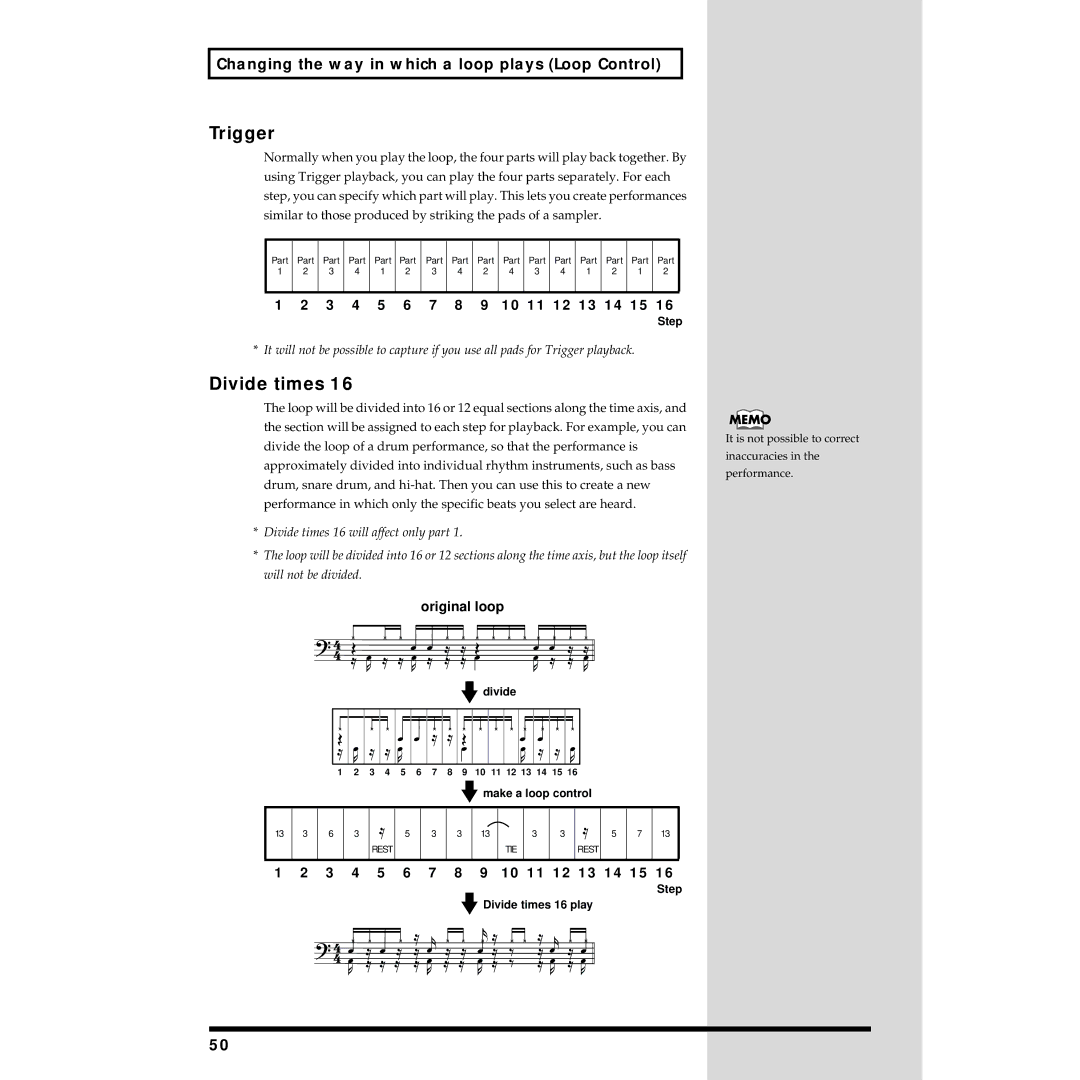
Changing the way in which a loop plays (Loop Control)
Trigger
Normally when you play the loop, the four parts will play back together. By using Trigger playback, you can play the four parts separately. For each step, you can specify which part will play. This lets you create performances similar to those produced by striking the pads of a sampler.
fig.5-2_90
Part | Part | Part | Part | Part | Part | Part | Part | Part | Part | Part | Part | Part | Part | Part | Part |
1 | 2 | 3 | 4 | 1 | 2 | 3 | 4 | 2 | 4 | 3 | 4 | 1 | 2 | 1 | 2 |
|
|
|
|
|
|
|
|
|
|
|
|
|
|
|
|
1 2 3 4 5 6 7 8 9 10 11 12 13 14 15 16
Step
* It will not be possible to capture if you use all pads for Trigger playback.
Divide times 16
The loop will be divided into 16 or 12 equal sections along the time axis, and the section will be assigned to each step for playback. For example, you can divide the loop of a drum performance, so that the performance is approximately divided into individual rhythm instruments, such as bass drum, snare drum, and
*Divide times 16 will affect only part 1.
*The loop will be divided into 16 or 12 sections along the time axis, but the loop itself
will not be divided.
fig.5-3_90
original loop
![]() divide
divide
1 | 2 | 3 | 4 | 5 | 6 | 7 | 8 | 9 | 10 | 11 12 13 | 14 | 15 16 |
![]() make a loop control
make a loop control
13 | 3 | 6 | 3 |
| 5 | 3 | 3 | 13 |
| 3 | 3 |
| 5 | 7 | 13 |
|
|
|
| REST |
|
|
|
| TIE |
|
| REST |
|
|
|
|
|
|
|
|
|
|
|
|
|
|
|
|
|
|
|
1 2 3 4 5 6 7 8 9 10 11 12 13 14 15 16
It is not possible to correct
inaccuracies in the
performance.
![]() Divide times 16 play
Divide times 16 play
Step
50
